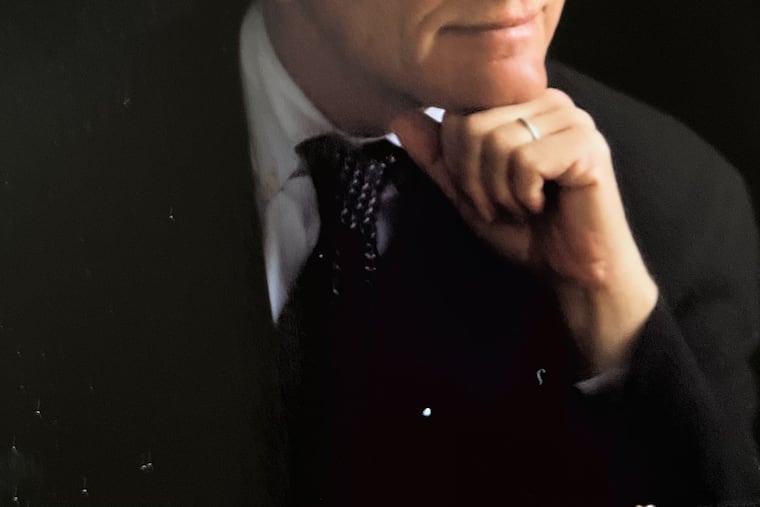Stuart L. Kaplan, a leading psychiatrist, author and researcher in children’s mental health, has died at 82
Dr. Kaplan was a child psychiatrist who held multiple leadership positions in hospitals throughout the nation, including Penn State Health Milton S. Hershey Medical Center.

Stuart Lee Kaplan, 82, of Avondale, a child psychiatrist who conducted clinical trials and held leadership positions in hospitals nationwide, died Monday, May 23, at Select Specialty Hospital in Wilmington. His family said he had received care after a brain hemorrhage.
Dr. Kaplan was the former chief of child psychiatry at Penn State Health Milton S. Hershey Medical Center and a practicing physician in his later career in Kennett Square.
In the early 1990s, he helped to pioneer early clinical trial research in child psychiatry, according to his wife, psychologist Joan Busner Kaplan. She said his work studied the use in children of antidepressants, attention-deficit/hyperactivity disorder drugs, and drugs to treat childhood obsessive compulsive disorder.
“It was a very exciting and important time,” she said, recalling her husband as “an unbelievable, remarkable person” who was willing to say when he thought the mainstream thinking of his field was wrong.
In the 1990s, Dr. Kaplan noticed a trend in childhood psychiatry that concerned him, his wife said. Many of his colleagues had started talking about the prevalence of bipolar disorder in children. He was worried that children were being misdiagnosed, labeled as bipolar, and given medication inappropriately.
Dr. Kaplan wrote a book about what he observed as a problematic fad in his field. In 2011, he published his book, Your Child Does Not Have Bipolar Disorder: How Bad Science and Good Public Relations Created the Diagnosis. In the same year, Dr. Kaplan wrote about the issue in Newsweek: “The evidence against the existence of pediatric bipolar disorder is so strong that it’s difficult to imagine how it has gained the endorsement of anyone in the scientific community.”
“He was brave, very brave, to really take on the field and write that book and be public about it,” his wife said. “There was a lot of backlash.”
Earlier in this career, Dr. Kaplan worked as a psychiatrist — including in the Philadelphia area — and held hospital leadership positions in psychiatry throughout the country, including at Long Island Jewish Medical Center, New York State’s Rockland Children’s Psychiatric Center, and St. Louis University School of Medicine.
Between 2000 and 2005, he was a professor of psychiatry and pediatrics at Penn State College of Medicine, and the chief of the division of child psychiatry at Penn State Health Milton S. Hershey Medical Center.
Born May 29, 1939, Dr. Kaplan grew up in Washington, D.C., and graduated from George Washington Medical School in 1965. After obtaining his medical degree he moved to Philadelphia, where he completed his psychiatry training at the University of Pennsylvania. He did an additional year of training at the University of Michigan.
He was a lieutenant commander in the Navy, where he served for a couple of years until 1972.
“He was principled to a point of stubbornness,” said his son, Lawrence Kaplan. “It’s something I admired about him even when I was a kid.”
Most recently, Dr. Kaplan saw patients on a part-time basis in Kennett Square as part of Holcomb Behavioral Health Systems.
His passions extended beyond psychiatry. In 2019, to celebrate their 25th wedding anniversary, he and Joan went on a cruise from Venice, Italy, to Athens, Greece. “That was incredible, being in Athens. He had a real passion for philosophy,” his wife recalled, “so going to Greece was like a dream for him. He had never been before.”
Lawrence Kaplan said that his father had a deep passion for sailing, “even though he would be the first to admit that he didn’t always excel at it.” He recalled that in his childhood, before GPS was commonplace, his father would spend weeks in his office charting routes. Later in life, he used to take his sailboat out in the Chesapeake Bay with his wife.
Dr. Kaplan also enjoyed skiing, poetry, and history — particularly reading about 19th-century nautical voyages and the Civil War, according to his son.
In addition to his wife and son, he is survived by a granddaughter. He was predeceased by his first wife, Sandra Bergman Kaplan.
Dr. Kaplan was buried on May 27 in a family plot in Boston in a small Jewish ceremony.
Donations in his name may be made to the American Civil Liberties Union, c/o the Gift Processing Department, 125 Broad St., 18th Floor, New York, NY 10004.